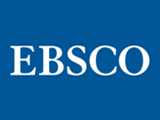
DynaMed™ from EBSCO Health is collaborating with the Guidelines International Network (G-I-N) to promote the development and dissemination of evidence-based guidelines in order to improve the quality of healthcare. The evidence-based clinical decision support tool DynaMed aims to provide the most useful information to health care professionals at the point of care while G-I-N promotes the creation of high quality clinical practice guidelines that foster safe and effective patient care.
DynaMed is a valuable resource in the creation of guidelines. High-quality guideline development requires a lengthy process to identify, evaluate and summarize the current evidence to inform making recommendations. Development can take between 18-24 months and cost hundreds of thousands of dollars. Although DynaMed does not focus directly on guideline development the systematic processes used to identify, evaluate and summarize evidence for point-of-care use greatly overlaps with the development needs for high-quality guidelines.
This overlap was first used to produce a high-quality guideline quickly with a limited budget in 2010 in Costa Rica. A breast cancer guideline commissioned by Seguro Social (La Caja Costarricense de Seguro Social-CCSS), Costa Rica’s public health system, was completed in six months, and this was achieved by using DynaMed which had already identified the relevant evidence and provided critical appraisal and clinically relevant summaries of the evidence
Brian S. Alper MD, MSPH, FAAFP (Founder of DynaMed) was asked to present this development at a G-I-N conference in 2012, introducing DynaMed and EBSCO Health to G-I-N. Interest in documenting this methodology and facilitating this guideline development support quickly grew across guideline developers from multiple countries and G-I-N and EBSCO Health developed a collaborative agreement.
G-I-N is comprised of 100 organizations and 131 individual members representing 48 countries from all continents. G-I-N provides a network and partnerships for guideline organizations, implementers, end-users, researchers, students and other stakeholders.
It promotes the systematic development of clinical practice guidelines and their application into practice in order to reduce inappropriate variation throughout the world.
Its goal is to reduce duplication of effort, while improving the efficiency of evidence-based guideline development, adaption, dissemination and implementation. G-I-N also looks to promote best practices through the development of opportunities for learning and building capacity and the establishment of high-quality standards of guideline development, adaptation, dissemination and implementation.
“G-I-N is delighted to enter into this collaborative agreement with DynaMed in order to provide a valuable resource to our members,” says G-I-N Executive Officer Elaine Harrow. “We anticipate that this collaboration will bring tangible benefits, especially to those members, who may otherwise not have access to such a tool. G-I-N is the key connector of stakeholders in the guideline world and we view this collaboration as a great step forward in demonstrating the additional benefits we are endeavouring to bring to our members.”
DynaMed facilitates the dissemination of guidelines and includes listings of 14,000 guidelines, organized by topic, then by geographic region. It helps healthcare professionals to identify related guidelines and promotes better dissemination of guidelines by making them more accessible at the point of care. DynaMed also provides alerts when new evidence is introduced and that evidence may impact existing guidelines.
Each G-I-N member organization will receive five complimentary subscriptions to DynaMed. Dr. Alper will also be taking part in the 11th Annual G-I-N Conference in Melbourne, Australia in August. For more information about DynaMed, please visit: https://dynamed.ebscohost.com.





















